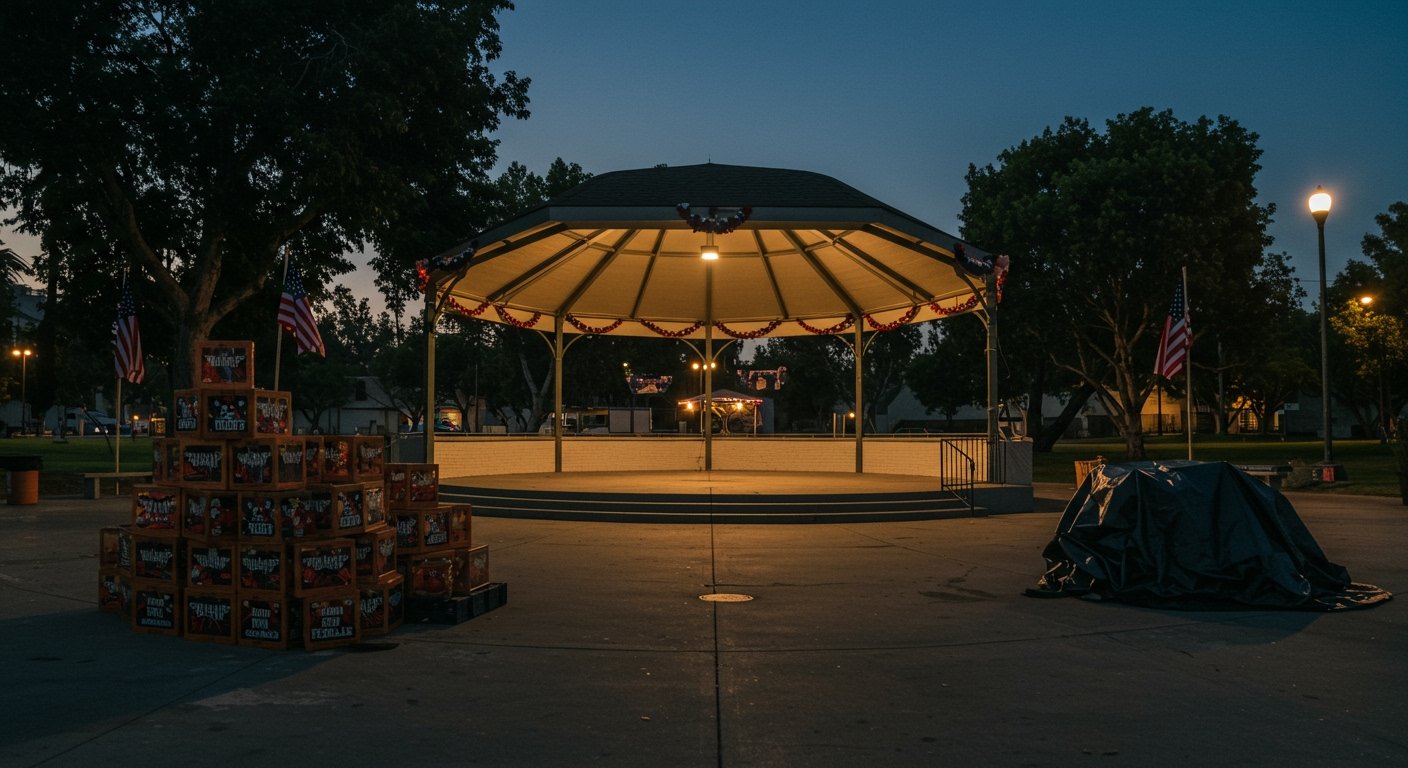LOS ANGELES – Fears surrounding potential immigration enforcement actions by Immigration and Customs Enforcement (ICE) have led numerous communities across Southern California to cancel or postpone their planned annual Independence Day fireworks displays and public celebrations.
Officials in several areas announced these decisions on Thursday, July 3rd, citing significant concerns for resident safety and widespread anxiety pervading local populations, particularly among immigrant families and those of mixed-immigration status.
Scope of Cancellations and Postponements
The disruptions span multiple jurisdictions and types of events planned to commemorate the national holiday. The County of Los Angeles Department of Parks and Recreation, a major provider of public events, stated it would postpone a scheduled summer movie and concert series. Additionally, the department confirmed the outright cancellation of the “East Los Angeles Rock’n 4th of July celebration” out of what officials termed “caution and in response to recent ICE enforcement activity.”
Further illustrating the breadth of the impact, the “Gloria Molina Grand Park Summer Block Party,” another significant public gathering, was indefinitely postponed. Organizers attributed this decision to “the ongoing circumstances impacting the region,” a clear reference to the heightened tensions and uncertainty caused by immigration enforcement concerns.
Cities throughout the region also joined the wave of cancellations or delays. Among the municipalities that announced altered plans were Bell Gardens, Boyle Heights, Cudahy, Huntington Park, and Whittier, as well as the unincorporated town of El Sereno.
The specific timing and duration of cancellations varied by location. For instance, the city of Bell Gardens announced the cancellation of all its public events scheduled through July 10. In Cudahy, officials stated they would postpone their celebration which was originally set for Thursday, July 3rd, 2025 – a decision seemingly made in the immediate context of the present concerns.
Underlying Reasons and Official Concerns
The primary justification provided by local officials for these drastic measures centers on safeguarding residents and mitigating pervasive fear. The stated concerns about “resident safety” extend beyond direct physical threats to encompass the psychological toll and potential risks associated with large public gatherings during a period of heightened immigration enforcement visibility. Officials specifically highlighted the “widespread anxiety” prevalent in communities with significant immigrant populations or families where members hold different immigration statuses.
The Fourth of July, a holiday traditionally marked by large public celebrations intended to foster community cohesion and patriotic sentiment, instead became a focal point for illustrating the palpable stress points within these communities. The decision to cancel events underscores the depth of concern that participation in public life could inadvertently expose vulnerable individuals to immigration authorities.
Activist Response and Planned Demonstrations
In contrast to the official cancellations, organizations and activists opposed to the Trump administration’s immigration enforcement policies have indicated they plan to proceed with demonstrations. These groups have scheduled planned actions for Friday, July 4th, in Los Angeles, aiming to voice their opposition to ICE actions and advocate for immigrant rights.
These planned demonstrations follow a period of escalating tensions and public unrest related to immigration policies. Last month, protests occurred in Los Angeles, some of which reportedly turned violent. The civil disturbances prompted President Donald Trump to order the dispatch of National Guard troops and Marines to the city.
However, this federal military deployment was met with reservations from local authorities. Both the Los Angeles Police Department and California Governor Gavin Newsom issued statements indicating their view that the military presence was unnecessary for local law enforcement purposes, suggesting that local agencies were capable of managing the situation.
Broader Implications for Community Life
The cancellation of civic celebrations on a holiday as significant as the Fourth of July highlights the profound impact that federal immigration policies are having at the local level. These cancellations disrupt long-standing community traditions, limit opportunities for public assembly and cultural expression, and contribute to an atmosphere of fear and uncertainty that extends beyond the individuals directly targeted by enforcement actions.
The decisions reflect a difficult calculus faced by local leaders attempting to balance the desire to host community events with the responsibility to protect residents from perceived risks. The anxiety cited by officials is a direct consequence of recent and anticipated enforcement activities, demonstrating how federal actions can ripple through cities and towns, altering the fabric of daily life and civic engagement.
The planned protests on July 4th serve as a counter-narrative, asserting the right to public assembly and dissent even as traditional celebrations are curtailed. They underscore the deep divisions and heightened emotions surrounding immigration in the current political climate.
As Southern California communities navigate these complex dynamics, the canceled fireworks displays and silenced concert stages stand as visible symbols of the tension between national policy and local realities, particularly for its diverse and often vulnerable populations.





